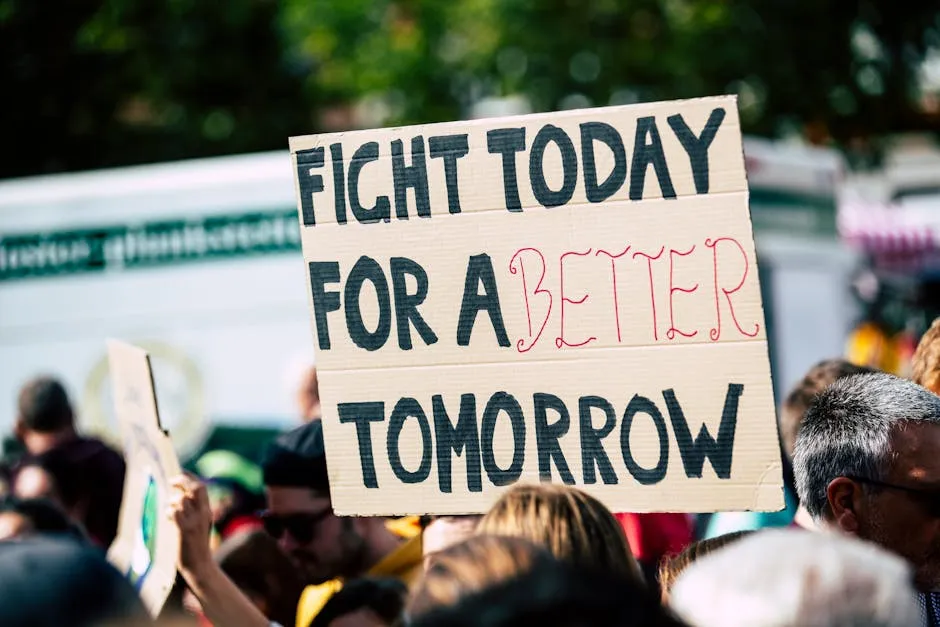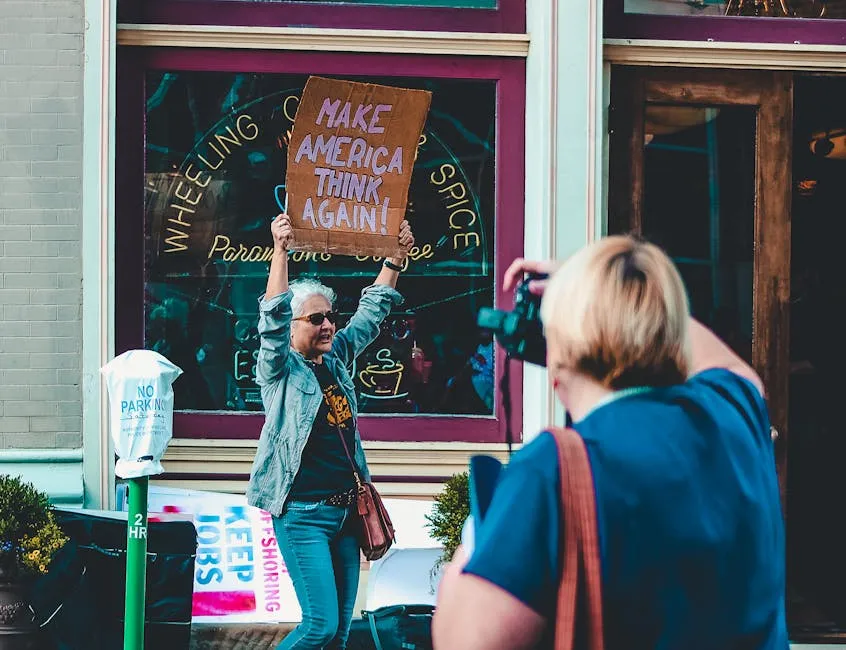
Why Are People Boycotting the Olympics 2024?
Introduction
The Olympic Games symbolize unity and athletic excellence. Yet, the upcoming 2024 Paris Games face boycotts. A growing number of voices are calling for action against the event. Various reasons fuel this movement, from political tensions to human rights concerns.
For those diving deep into the history of the Olympics, you might want to check out The Olympic Games: A History of the Modern Olympics Book. It gives a fascinating overview of how these games have evolved over the years, serving as a backdrop to the current controversies.
Summary and Overview
As the 2024 Olympics approach, controversies abound. The backdrop includes heightened political strife, particularly regarding the Israel-Palestine conflict. Activists are demanding accountability for Israel’s actions in Gaza, which have resulted in significant casualties. Moreover, concerns about labor rights for workers involved in the Games are surfacing.

This isn’t the first time boycotts have shaped Olympic history. Previous Games, including Moscow in 1980 and Los Angeles in 1984, saw many nations withdraw due to political tensions. The current climate echoes these historical precedents, indicating a complex interplay between sport and global issues. As the IOC navigates these challenges, the future of the Games hangs in the balance.
If you’re curious about the broader implications of the Olympics on human rights, Amnesty International: A History of Human Rights Book provides critical insights into how human rights issues intersect with global events, including the Olympics.
Factors Contributing to the Boycott of the 2024 Olympics
Political Climate
International politics play a significant role in the boycott of the 2024 Olympics. Countries like Russia and Belarus have been at the forefront of this movement, primarily due to their involvement in ongoing conflicts. The Russian invasion of Ukraine has led to widespread condemnation and calls for accountability.
Countries supporting the boycott cite the need to address these geopolitical tensions. For instance, public sentiment reflects a growing unease, with a recent poll indicating that nearly 60% of respondents oppose participation in the Games under the current circumstances. This increasing discontent exemplifies how political dynamics can overshadow athletic events, prompting nations to reconsider their involvement.

To further explore the intricate relationship between politics and sport, check out The Politics of Sport: Analyzing Global Events Book. This book dives deep into how political contexts shape sporting events, including the Olympics.
Human Rights Issues
Allegations of human rights abuses have surfaced as major concerns associated with the 2024 Olympics. Many activists argue that hosting the Games in Paris exacerbates existing issues related to marginalized communities. Reports indicate that vulnerable populations, including the homeless, face evictions to “sanitize” the city for the event.
Organizations like Amnesty International and the United Nations Human Rights Office have condemned the treatment of these communities. They argue that the focus on a glamorous Olympic image often neglects the harsh realities faced by those living in the shadows. Criticism also extends to the French government’s ban on hijabs for Muslim female athletes, which has drawn ire for infringing upon personal freedoms. These human rights concerns amplify calls for a boycott, as activists demand accountability and ethical considerations in hosting global events.

If you’re interested in understanding the human rights landscape better, consider reading A History of Human Rights Violations Book. It provides a comprehensive overview of human rights struggles across different eras.
Specific Controversies
Israel-Palestine Conflict
Calls to ban Israeli athletes from the 2024 Olympics are growing. This movement is fueled by the ongoing violence in Gaza. Recent statistics reveal over 39,000 Palestinian fatalities amid the conflict, including many children. International reactions have varied, with some countries openly condemning Israel’s actions. Pro-Palestinian protests are emerging, advocating for accountability. Activists argue that the Olympic spirit cannot coexist with such human rights violations. The voices supporting the boycott highlight the need for justice and peace, urging the International Olympic Committee to take a stand. This situation amplifies the call for athletes to unite against oppression.

For a deeper understanding of the Israel-Palestine conflict and its implications, consider reading The Conflict: Israel-Palestine Book. It sheds light on the ongoing struggles and historical context that shape this issue.
Russia and Belarus Participation
The Olympic landscape has shifted significantly due to the Ukraine conflict. Russia and Belarus face exclusion from the 2024 Games. This decision stems from Russia’s actions during the invasion of Ukraine, which began in 2022. The International Olympic Committee has allowed only a limited number of neutral athletes from these nations to compete. However, they cannot represent their countries or display national symbols. Public opinion is largely against Russian participation, with many feeling it’s unjust to allow them in while others face bans. This situation raises questions about fairness and the integrity of the Olympic Games amid geopolitical tensions.

To explore the broader implications of such participation, you might find The Politics of the Olympic Games Book to be insightful. It discusses how political stances influence the Games and their participants.
Cultural and Religious Tensions
The 2024 Olympics face significant backlash due to cultural and religious issues. A prominent concern is the French government’s ban on hijabs. This ban directly affects Muslim athletes, restricting their ability to compete while expressing their faith. Many see this as an infringement on personal freedoms and a lack of inclusivity.
Additionally, cultural criticisms have emerged surrounding the Olympic ceremonies. Some argue that the performances may not respect diverse cultural expressions. These criticisms highlight a disconnect between the Olympic ideals of unity and the realities for various communities.

Such tensions have fueled calls for a boycott. Advocates argue that the Olympics should not proceed without addressing these critical issues. The sentiment is clear: inclusivity and respect for all cultures must be prioritized, or the Games risk losing their legitimacy.
If you’re looking for a comprehensive view of the cultural implications of the Olympics, consider The Olympics: A Cultural History Book. It discusses the cultural narratives that shape the Games and their impact on global society.
Historical Context of Olympic Boycotts
Throughout history, Olympic boycotts have left a lasting impact on the Games. The most notable examples include the 1980 Moscow Olympics and the 1984 Los Angeles Games. In 1980, many nations, led by the United States, boycotted Moscow due to the Soviet invasion of Afghanistan. This action aimed to protest political actions through athletic participation.

The 1984 Los Angeles Olympics saw a retaliatory boycott, primarily by Eastern Bloc countries. These events demonstrated how political decisions could overshadow the spirit of international competition. They also highlighted the potential consequences of using the Olympics as a stage for geopolitical disputes.
From these historical instances, we learn the importance of dialogue and understanding. Boycotts can disrupt the Olympic spirit, affecting athletes and fans alike. As the 2024 Games approach, it is crucial to remember these lessons and seek resolutions that prioritize unity and respect among nations.
For those interested in a deeper dive into the history of Olympic boycotts, I recommend The History of the Olympic Boycott Book. It provides a detailed account of how political actions have influenced Olympic participation.
Public Opinion and Activist Movements
Public sentiment regarding the 2024 Olympics is increasingly negative. Many people feel the Games should not proceed amid ongoing human rights violations and political tensions. Recent surveys indicate that around 65% of respondents oppose participating in the Olympics under current circumstances. Activist groups like “Boycott 2024” and “No Olympics for Israel” are gaining traction, utilizing social media and grassroots campaigns to spread their message.

These groups advocate for accountability, highlighting issues like the treatment of marginalized communities in Paris and the ongoing violence in Gaza. Protests have emerged in various cities, calling for action against the Games. Activists often use hashtags to amplify their voices online, making the boycott a trending topic. This movement reflects a growing awareness of how global events intersect with local and international injustices, urging people to reconsider their support for the Olympics.
For an insightful read on activism, check out The Art of Protest: A Guide to Activism Book. It provides essential strategies and insights for effective activism in today’s world.
Conclusion
The discourse surrounding the 2024 Olympics highlights significant concerns about human rights and political accountability. Calls for boycotts emphasize the need for ethical considerations in hosting such events. As the Games draw near, the outcomes of this boycott could redefine the Olympics’ role on the global stage. Engaging in conversations about these implications is vital. What are your thoughts on the future of the Olympics amidst these pressing issues? Share your views in the comments!
FAQs
What are the main reasons people are boycotting the Olympics 2024?
The primary issues include human rights violations, political conflicts, and concerns over labor rights.
How has the history of Olympic boycotts shaped current sentiments?
Past boycotts, such as those in 1980 and 1984, illustrate the impact of political decisions on Olympic participation.
What impact could the boycott have on the Olympics and participating countries?
The boycott could lead to decreased visibility for athletes and financial implications for the International Olympic Committee.
Are there any countries officially boycotting the 2024 Olympics?
While no countries have formally declared a boycott, several officials and groups are advocating against participation.
How do activists organize against the Olympics?
Activists use social media, protests, and community outreach to raise awareness and promote the boycott effectively.
Please let us know what you think about our content by leaving a comment down below!
Thank you for reading till here 🙂
All images from Pexels




